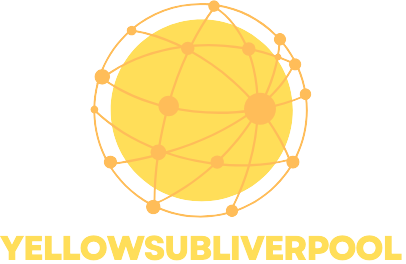Table of Contents
ToggleIn the fast-paced world of digital marketing, having the right tools can feel like wielding a superhero’s cape. With countless platforms and technologies available, it’s easy to get lost in the digital jungle. But fear not! The right arsenal can transform any marketing agency from a mere mortal into a powerhouse ready to conquer the online realm.
Imagine effortlessly tracking campaigns, analyzing data, and crafting content that practically sells itself. Whether it’s social media management or SEO optimization, the right tools can make all the difference. So, buckle up and get ready to explore the must-have gadgets that could skyrocket a digital marketing agency’s success—because who said marketing can’t be fun?
Overview of Digital Marketing Tools
Digital marketing tools empower agencies to streamline processes, enhance efficiency, and drive results. Marketing professionals rely on various software solutions to meet different needs. These tools facilitate performance tracking, audience engagement, and data-driven decision-making.
Content management systems (CMS) simplify website management. Agencies use CMS platforms like WordPress or HubSpot to create, edit, and publish content easily. Social media management tools, such as Hootsuite and Buffer, allow marketers to schedule posts, monitor engagement, and analyze performance across multiple channels.
Email marketing platforms like Mailchimp and Constant Contact enable targeted outreach and campaign management. Email automation features help nurture leads while tracking engagement metrics assists in refining strategies. Additionally, customer relationship management (CRM) systems, including Salesforce and Zoho, enhance client relationship tracking and improve sales processes.
Search engine optimization (SEO) tools, such as SEMrush and Moz, assist agencies in analyzing website performance and keyword rankings. These tools provide insights into organic search strategies, improving visibility and traffic. Analytics solutions like Google Analytics play a crucial role in measuring website performance and user behavior.
Lastly, design tools streamline the creative process. Platforms like Canva and Adobe Creative Cloud allow marketers to create professional visuals, social media graphics, and promotional materials quickly. Utilizing the right combination of digital marketing tools cultivates success, enabling agencies to maintain a competitive edge in a dynamic online landscape.
Essential Tools for Digital Marketing Agencies

Having the right tools for digital marketing enhances agency performance and drives effective campaigns. From social media management to SEO analysis and content creation, various software solutions help agencies maximize their impact.
Social Media Management Tools
Social media management tools streamline the process of engaging audiences across platforms. Hootsuite enables scheduling and monitoring of posts, while Buffer offers detailed analytics to optimize performance. Additionally, Sprout Social enhances team collaboration with shared access to client accounts. These tools help to maintain consistent messaging and save time in managing multiple accounts.
SEO Tools
SEO tools play a crucial role in enhancing online visibility and driving traffic. SEMrush provides keyword analysis and competitor insights, helping agencies refine their strategies. Ahrefs offers backlink analysis features that aid in optimizing website authority. Google Search Console assists in monitoring website performance and diagnosing technical issues. Utilizing these tools ensures agencies stay ahead in search rankings.
Content Creation Tools
Content creation tools simplify the process of designing and producing engaging materials. Canva allows marketers to create high-quality visuals without needing extensive design skills. Adobe Spark offers templates for videos and graphics, catering to diverse content needs. Grammarly aids in crafting polished written content by checking for grammar and style. These tools empower teams to generate eye-catching content efficiently.
Project Management and Collaboration Tools
Effective project management and collaboration tools streamline workflows and enhance team productivity within a digital marketing agency. Select the right tools to facilitate seamless communication and organization.
Task Management Software
Task management software is vital for organizing projects and tracking progress. Tools like Trello and Asana enable teams to create boards for tasks and assign responsibilities. By using these tools, agencies can visualize their project timelines, prioritize tasks, and monitor deadlines. Features such as automated reminders and progress tracking keep team members aligned. This clarity ensures everyone understands their roles and project status, which enhances accountability and efficiency in achieving objectives.
Communication Tools
Communication tools are essential for fostering collaboration among team members. Platforms like Slack and Microsoft Teams provide real-time messaging, video conferencing, and file sharing. These features allow team members to connect instantly, regardless of location. By using channels for specific projects or teams, agencies can organize conversations effectively. Scheduled meetings via these platforms enable structured discussions, minimizing miscommunication. This focus on efficient communication supports a collaborative environment that drives project success and team cohesion.
Analytics and Reporting Tools
Analytics and reporting tools are essential for digital marketing agencies to evaluate campaign effectiveness. Google Analytics stands out as a premier solution, providing in-depth insights on user behavior and traffic patterns. Marketers track metrics like page views, bounce rates, and conversion rates to optimize strategies and improve ROI.
Tableau excels in data visualization, allowing agencies to create interactive dashboards. Managers illustrate complex data sets clearly, enabling teams to derive actionable insights. Combining data sources enhances decision-making, helping to identify trends and opportunities.
HubSpot offers integrated analytics features that track inbound marketing metrics. This all-in-one platform provides comprehensive reports on lead generation, email performance, and customer engagement. Marketers benefit from HubSpot’s ability to connect marketing efforts back to sales figures, facilitating more informed strategies.
SEMrush enhances SEO reporting by offering keyword insights and competitive analysis. This tool helps agencies monitor their rankings, track competitors, and discover new keywords to target. Utilizing SEMrush’s data-driven approach aids in refining SEO strategies and improving organic reach.
Ahrefs serves as another powerful SEO tool that focuses on backlink analysis. Agencies leverage Ahrefs to understand their link profile and discover opportunities for link building. Reports generated provide insights on domains linking to their content, aiding in strategy adjustments.
Power BI delivers robust analytics capabilities, supporting business intelligence with its data visualization tools. Marketers create custom dashboards that reflect specific KPIs, allowing for real-time monitoring of campaigns. Aggregating data from various sources fosters a holistic view of performance.
Using these analytics and reporting tools helps digital marketing agencies make informed decisions based on solid data. Empowering teams with actionable insights leads to improved campaign performance and better alignment with business objectives.
Equipping a digital marketing agency with the right tools is essential for thriving in a competitive landscape. These tools not only streamline processes but also enhance collaboration and data-driven decision-making. By leveraging effective software solutions agencies can optimize their campaigns and maximize ROI.
The right combination of social media management, SEO, content creation, and analytics tools empowers teams to work efficiently and achieve their goals. As the digital marketing world continues to evolve staying updated with the latest tools will ensure agencies remain at the forefront of innovation. Investing in these resources is a strategic move that can lead to long-term success and growth.







